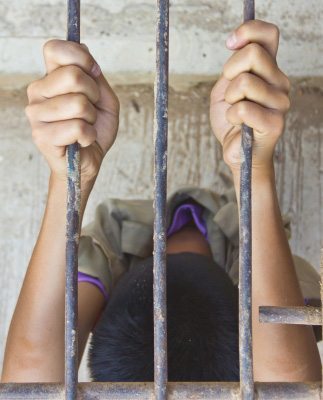How Can Christian Counseling Help With Sexual Abuse and Hopelessness?
Erik Mildes
Victims of sexual abuse wrestle with a wide range of feelings. One of these feelings is the feeling of hopelessness. A victim of sexual abuse might think, “Nobody was there to stop the abuse, there was nothing I could have done to stop the abuse, therefore, the situation was hopeless, and now I am hopeless.”

Unfortunately, a feeling of hopelessness can be devastating to the victim of sexual abuse as they grown, mature, and begin to make choices. Feeling hopeless can result in a person becoming a perpetual victim to life and circumstances, creating a hindrance to take control of their life, actions, thoughts, and preventing them from moving forward.
Dan Allender, in his book, The Wounded Heart says, “I do not believe a victim of abuse can ever rightfully say, “I am utterly helpless now and in the future to stop destructive behaviors or change the direction of my life.”
The devastation caused from sexual abuse is great. However, sometimes the greatest damage is found in those feelings of hopelessness and helplessness.
From this perspective, it is easy to understand why victims of sexual abuse may struggle to identify God as good, caring, or present, “If God could not stop the abuse, then surely my life is hopeless!”
Allender identifies that often times, “Abuse provides the raw data that seems to prove that God is not good.” He continues by addressing how these feelings affect our ability to trust God, “Trust is foolish; therefore, I am compelled to live my life independent of God’s will. My experience seems directly to contradict God’s promise to provide for and protect my soul, so I am excused from the weighty demands of holiness and justified in failing to reflect God’s glory in my life.”
Victims of sexual abuse can feel isolated from others as they wrestle with feelings of trust. If they cannot trust God, can they trust others? Or is their life indeed hopeless?
Dan Allender clearly states that, “No victim is responsible for having been abused. But abuse does provide strong reasons, potent stories, to ask, “Where was God? Does he love me” can I trust Him? If I can, what am I to trust Him for?” The devilishness of abuse is that it does Satan’s work of deceiving children and adults about God’s true nature and encouraging them to mistrust Him. Fearing to trust God, the abuse victim will naturally choose other gods to provide her with life; whether alcohol, promiscuity, or approval seeking.”
However, this does not have to be the story for you. If hopelessness and helplessness have taken a hold of your life, or if you feel as if you cannot trust God, know that this is not the story that God has written for you.
Unfortunately, other people’s actions can damage us. Regardless, God’s plan is to heal us, to walk with us, and to offer His unending hope and love to us.
For I know the plans I have for you, declares the Lord. Plans to prosper you and not to harm you, plans to give you hope and a future. — Jeremiah 29:11 NIV
God has given you a promise of healing. His plan for your life is good. He wants you to prosper and he never intended harm for you. If other people did harm you, remember that was not a part of His plan for your life. But what God does offer – even after the abuse – is hope and a future.
Maybe the enemy has deceived you and made you believe that there is no hope for your life, yet God whispers to you, “I have a plan for you, I offer hope and a future.”
If you wrestle with feelings of hopelessness as a result of sexual abuse, know that there is hope. Christian counseling is a way to help you sort through those feelings and find the promise of a hope and a future. You can regain control of your life and move forward. And you do not have to do it alone.
Photos
cc: freedigitalphotos.net – “Man Grabbing Steel Cage” by bejim




